
Smart Cities, Smarter Cybersecurity?
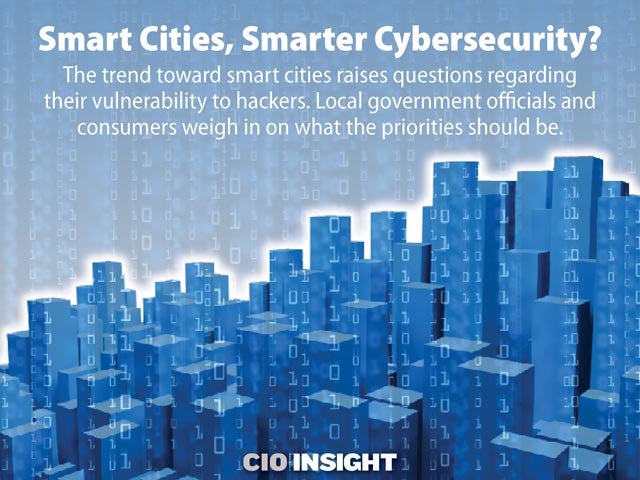 Smart Cities, Smarter Cybersecurity?
Smart Cities, Smarter Cybersecurity?
The trend toward smart cities raises questions regarding their vulnerability to hackers. Local government officials and consumers weigh in on what the priorities should be.
 Leaping from Digital to Smart
Leaping from Digital to Smart
To make the leap from digital to smart requires rethinking IT architecture, broadband infrastructure, workflows, user experience, staff training and more. Smart cities must be built on smart foundations.
 Data Is Critical to Smart City Success
Data Is Critical to Smart City Success
Because the private sector continues to wrestle with big data challenges, it is assumed that local governments, which do not have deep data expertise, will face data-related hurdles.
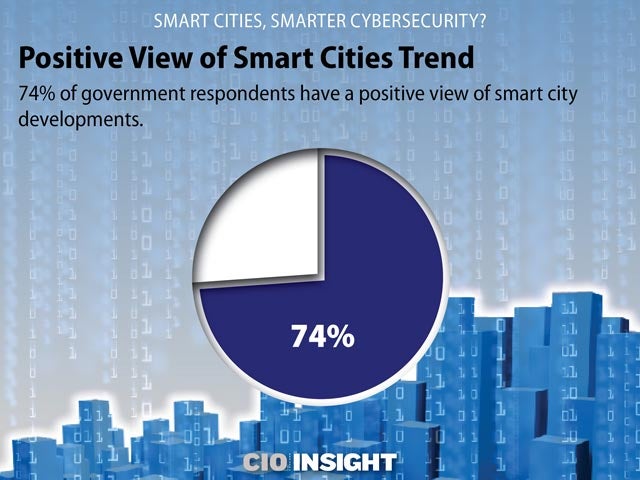 Positive View of Smart Cities Trend
Positive View of Smart Cities Trend
74% of government respondents have a positive view of smart city developments.
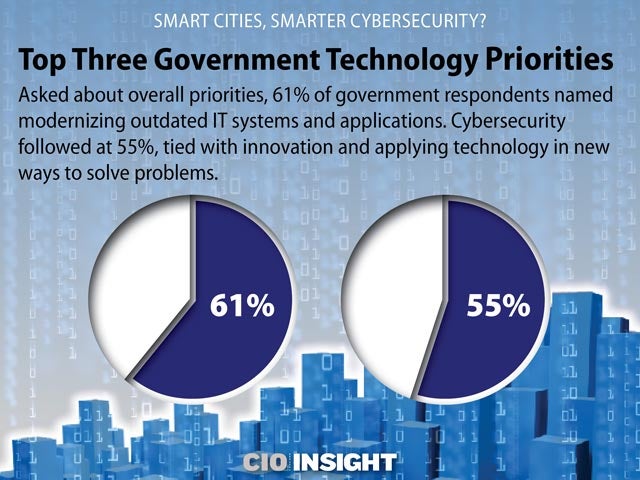 Top Three Government Technology Priorities
Top Three Government Technology Priorities
Asked about overall priorities, 61% of government respondents named modernizing outdated IT systems and applications. Cybersecurity followed at 55%, tied with innovation and applying technology in new ways to solve problems.
 Top Technology Priority for Larger Cities
Top Technology Priority for Larger Cities
Cities with 250,000 or more residents named innovation and applying technology in new ways to solve problems as their top technology priority.
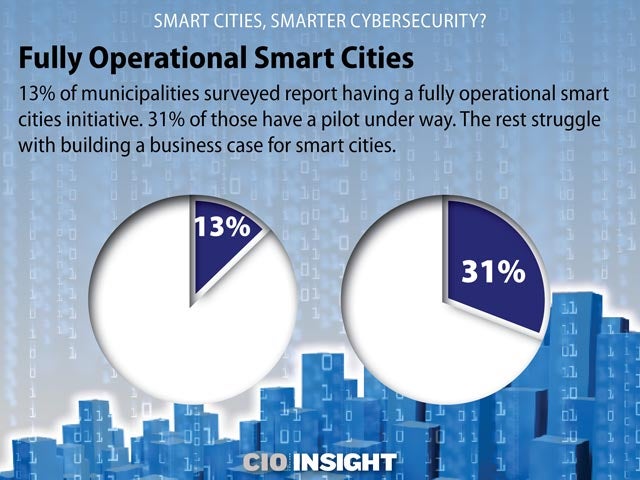 Fully Operational Smart Cities
Fully Operational Smart Cities
13% of municipalities surveyed report having a fully operational smart cities initiative. 31% of those have a pilot under way. The rest struggle with building a business case for smart cities.
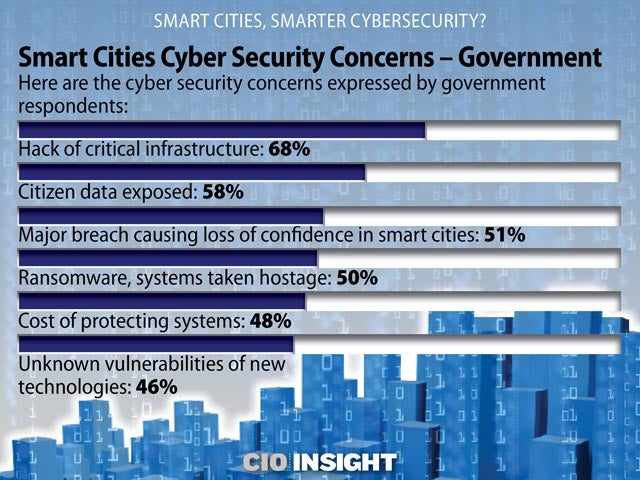 Smart Cities Cyber Security Concerns – Government
Smart Cities Cyber Security Concerns – Government
Here are the cyber security concerns expressed by government respondents:
Hack of critical infrastructure: 68%,
Citizen data exposed: 58%,
Major breach causing loss of confidence in smart cities: 51%,
Ransomware, systems taken hostage: 50%,
Cost of protecting systems: 48%,
Unknown vulnerabilities of new technologies: 46%
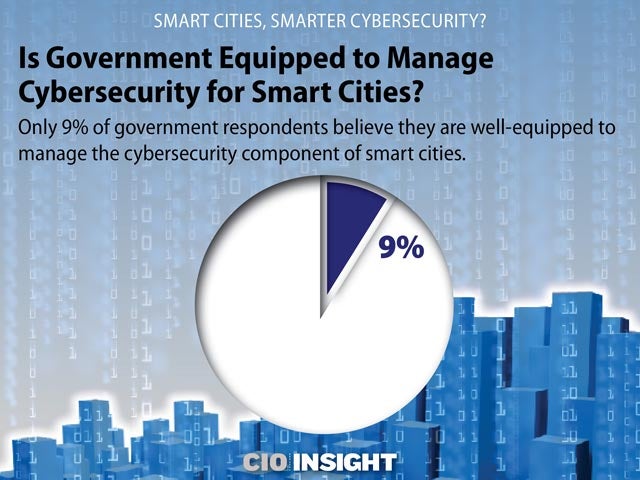 Is Government Equipped to Manage Cybersecurity for Smart Cities?
Is Government Equipped to Manage Cybersecurity for Smart Cities?
Only 9% of government respondents believe they are well-equipped to manage the cybersecurity component of smart cities.
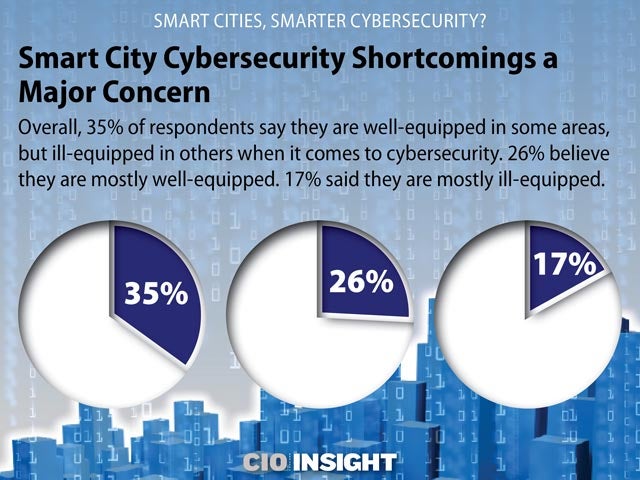 Smart City Cybersecurity Shortcomings a Major Concern
Smart City Cybersecurity Shortcomings a Major Concern
Overall, 35% of respondents say they are well-equipped in some areas, but ill-equipped in others when it comes to cybersecurity. 26% believe they are mostly well-equipped. 17% said they are mostly ill-equipped.
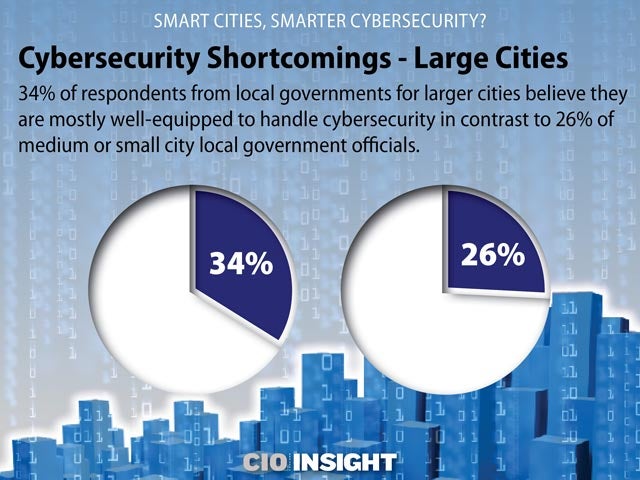 Cybersecurity Shortcomings – Large Cities
Cybersecurity Shortcomings – Large Cities
34% of respondents from local governments for larger cities believe they are mostly well-equipped to handle cybersecurity in contrast to 26% of medium or small city local government officials.
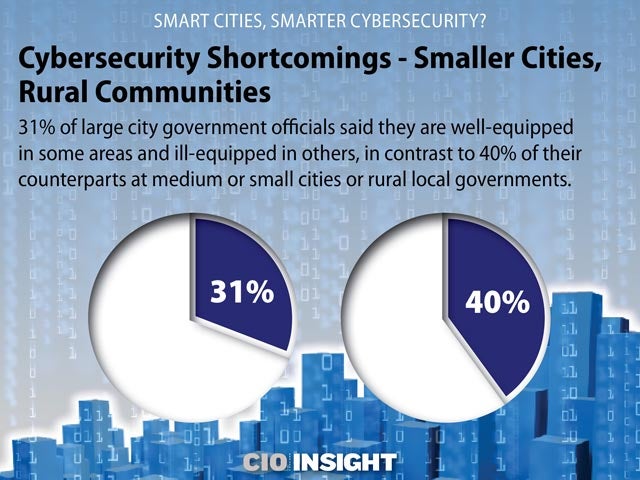 Cybersecurity Shortcomings – Smaller Cities, Rural Communities
Cybersecurity Shortcomings – Smaller Cities, Rural Communities
31% of large city government officials said they are well-equipped in some areas and ill-equipped in others, in contrast to 40% of their counterparts at medium or small cities or rural local governments.
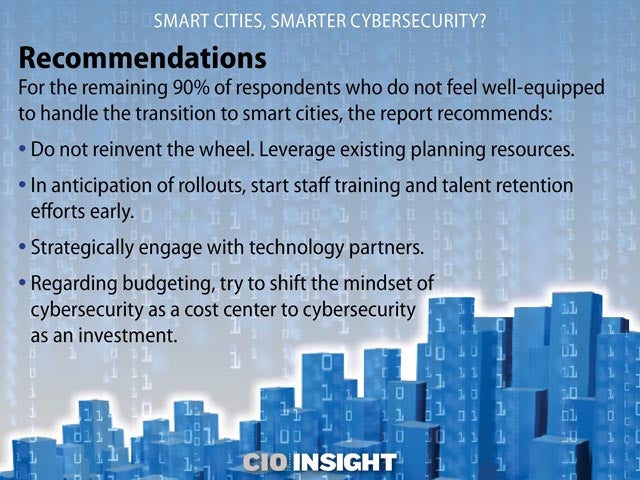 Recommendations
Recommendations
For the remaining 90% of respondents who do not feel well-equipped to handle the transition to smart cities, the report recommends: Do not reinvent the wheel. Leverage existing planning resources.
In anticipation of rollouts, start staff training and talent retention efforts early.
Strategically engage with technology partners.
Regarding budgeting, try to shift the mindset of cybersecurity as a cost center to cybersecurity as an investment.